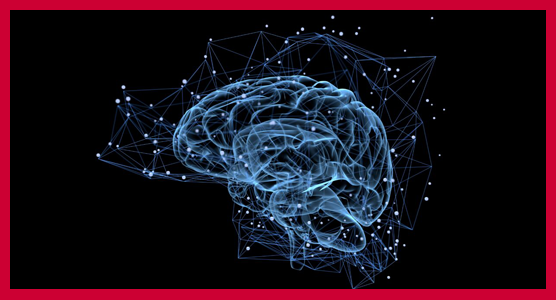Rutgers neuroscientists are working to translate basic research discoveries about how the brain works into groundbreaking, targeted therapies that can improve how we treat substance use disorders and other mental health challenges in the future.
What does your brain have to do with it?
The human brain is the most complex organ in the body. Drugs interfere with important brain areas that are necessary for life-sustaining functions, which can drive the compulsive drug use that marks addiction. RARC researcher Dr. Travis Baker is leading the charge to develop new brain-based interventions that correct the reward processes that become altered in substance use disorders. Baker’s use of a cutting-edge robot-assisted brain-imaging technology called transcranial magnetic stimulation (Ri-TMS) induces electrical currents inside the brain with great precision to alter reward circuitry. Initial results suggest that TMS could be effectively integrated into substance use programming by augmenting cognitive control mechanisms, thereby offering a potential new avenue for treatment in addiction therapy.
Advancing drug discovery
There are currently only 4 medications for substance use disorder, compared to the hundreds that exist for doctors to treat most medical outcomes. RARC Executive Board member Dr. Morgan James, is working on changing this. Dr. James has developed an artificial intelligence method to screen all existing drugs to determine if they may have off-target effects at the orexin 1 receptor, a brain region that his work, and that of other Rutgers neuroscientists, have shown to be involved in addiction. The AI platform, as well as candidate drugs that were discovered during the process, have been patented through the Office for Research’s technology transfer department, and James and his team are continuing their medicinal chemistry study to find drugs that have high promise on their own and could potentially be modified to become viable medications focusing on the orexin system.
Not all substance use disorders are created equal. Did you know that currently there are no effective therapies for cocaine addiction?! Dr. Chris Pierce, Professor of Psychiatry and RARC Chair of Basic Science and Training, uses a model of craving in animals involving self-administration of cocaine to identify novel neurobiological adaptations produced by cocaine. By exploring these adaptations, his team hopes to identify novel therapeutic targets for cocaine addiction.
Click here to learn more about other RARC research discoveries, or sign up for our newsletter to stay up-to-date on all RARC news and events.

